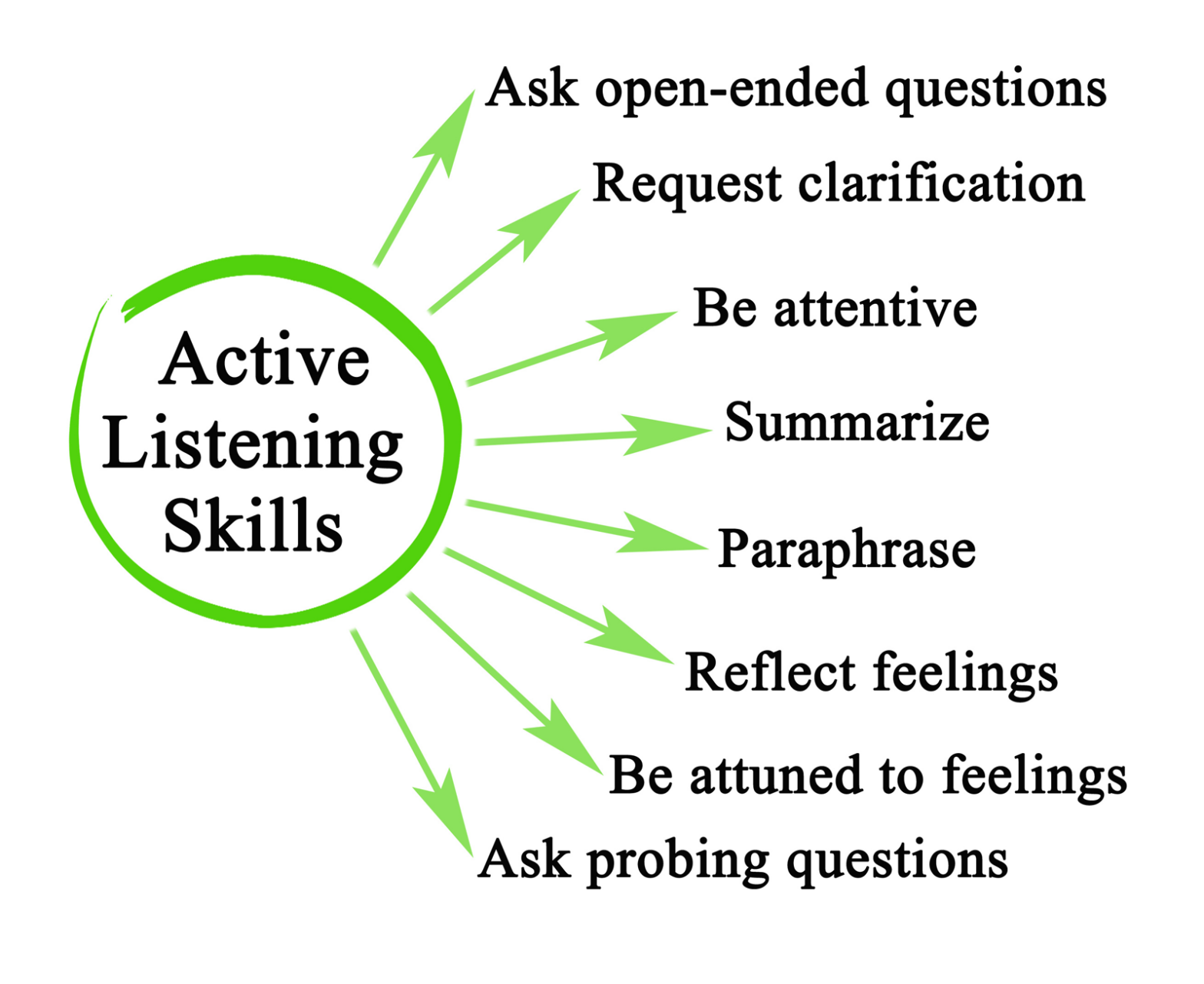“The single biggest problem in communication is the illusion that it has taken place.” – George Bernard Shaw
Effective communication is essential for effective leadership, and the skill of active listening is at its heart. Miscommunication can lead to conflict and missed opportunities, but by genuinely listening—engaging with both the verbal and nonverbal aspects of what someone is saying—we can transform our relationships.
Active listening involves fully engaging with the speaker, setting aside your agenda, and immersing yourself in your counterpart’s perspectives. Showing a deep, human interest in their ideas and positions can lead to greater connection and eliminate barriers to understanding and change, as Robert Keegan and Lisa Lahey highlighted in their excellent work “Immunity to Change.”
The following three practices can enhance your capacity for active listening:
Empathy: Deepening Understanding and Connection.
Empathy in communication is not merely about recognizing emotions; it’s about immersing oneself in the emotional experience of another. This deep understanding is achieved through active empathic listening, which involves several steps to ensure the speaker feels genuinely heard and understood. The Grossman Group outlines a process for empathic communication that includes listening without interruption, pausing to imagine how the other person feels, reflecting on what has been said, validating feelings, offering support, and following up after an appropriate amount of time.
Empathy is divided into cognitive, affective, behavioral, and moral components. Cognitive empathy involves perceiving a situation from another’s perspective, which can be developed through observation and experience. Affective empathy is an involuntary response to someone else’s emotional state and is considered part of one’s personality. Behavioral empathy follows understanding and is expressed through actions that communicate understanding and provide therapeutic support. Moral empathy motivates concern and the desire to act to relieve suffering. Empathy is distinct from sympathy, an immediate emotional reaction to another’s situation. While sympathy may lead to shared suffering, empathy drives an individual to act helpfully on someone else’s behalf without becoming emotionally burdened.
Open-Mindedness: Fostering Deeper Connections.
Open-mindedness is crucial for effective communication and the development of intercultural communication skills. It involves a willingness to consider new ideas and perspectives critically and objectively. In meetings, open-mindedness can lead to more productive discussions and better decision-making.
Active listening is a key to cultivating open-mindedness, requiring an effort to understand others’ viewpoints and how they fit into the larger picture. Avoiding assumptions and being willing to change one’s mind when presented with new information are also essential practices. Encouraging diverse perspectives can lead to more creative solutions and improved decision-making. Open-mindedness is not just a trait but an activity of the mind that requires deliberate, moral attention to ideas and beliefs different from one’s own.
Courage: Embracing Discomfort for Growth.
Courageous communication involves facing fears and uncertainties and replacing them with courage, which builds comfort with discomfort over time. It is about acknowledging the difficulty of giving feedback, having challenging conversations, and responding with courage.
Courageous communication requires stepping into uncomfortable conversations because you care about another person’s success. It is a sign of respect and care, even if the feedback is hard to hear in the short term. It is about being honest with oneself and others about shortcomings and requires a willingness to look at oneself and one’s blind spots honestly.
As leaders and innovators, we should strive to be mindful communicators, using active listening to build meaningful connections. Doing so can turn communication into a bridge that fosters understanding, compassion, and peace.
Stay focused, stay humble, and actively listen. Hooyah!


